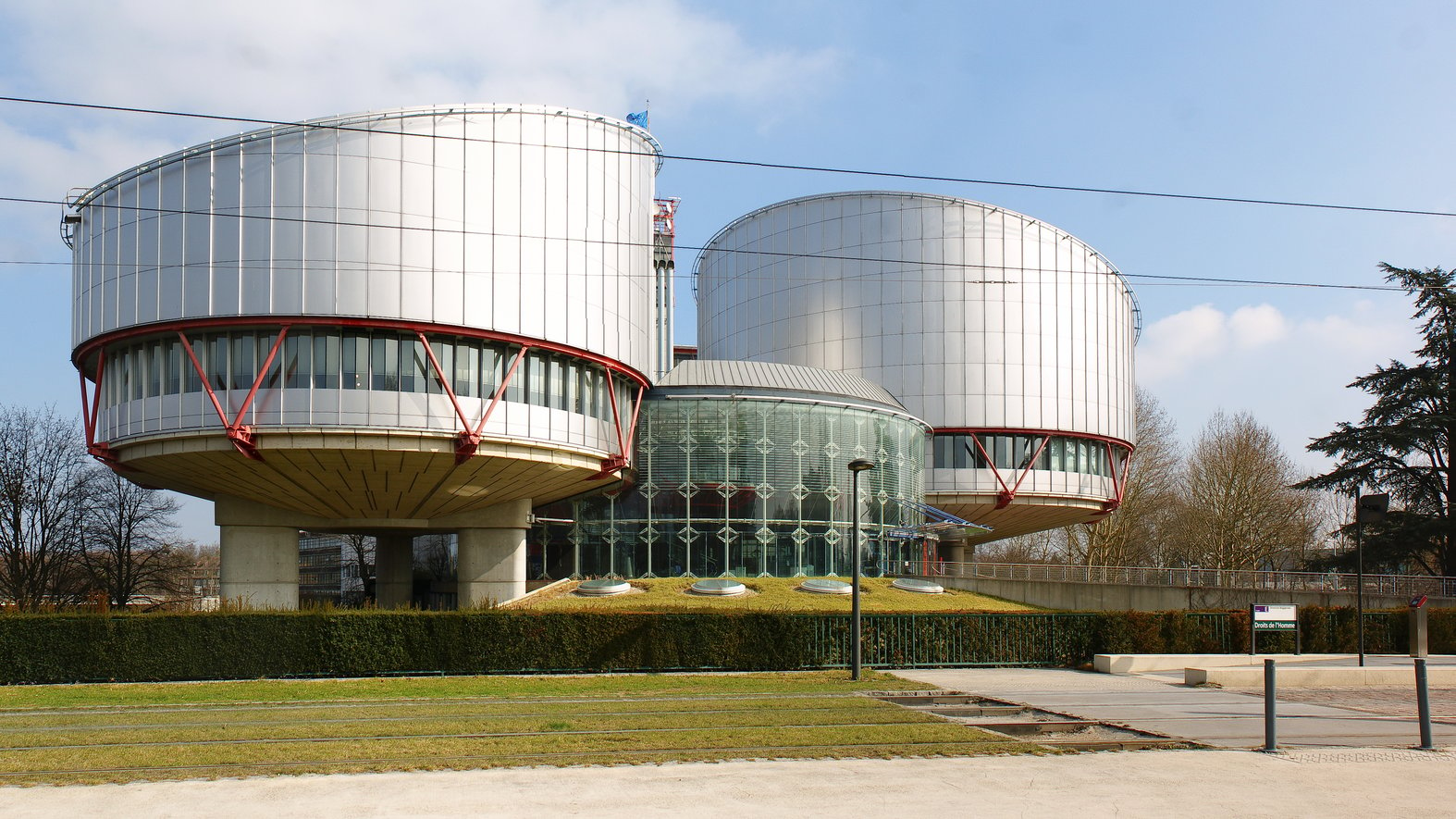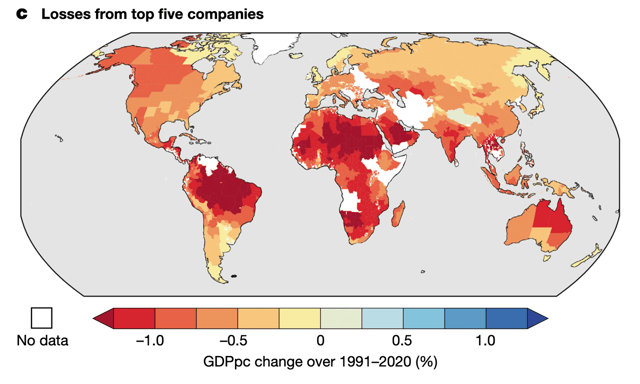
In the most recent report from the Intergovernmental Panel on Climate Change, both climate litigation and climate activism were listed, for the first time, as ways to potentially mitigate climate change (in other words, actually reduce greenhouse gas emissions, thereby mitigating eventual climate impacts). "Climate litigation is growing and can affect the outcome and ambition of climate governance," Chapter 13 in the IPCC mitigation report notes. Elsewhere in the chapter, it adds: "Activism, including litigation, as well as the tactics of protest and strikes, have played a substantial role in pressuring governments to create environmental laws and environmental agencies tasked with enforcing environmental laws that aimed to maintain clean air and water in countries around the world."
That report, released in 2022, cited more than 1800 climate cases making their way through courts around the world. That number has only increased as citizens, fed up with their governments' refusal to act to prevent the dangers posed by climate change, take to the courts. It's worth keeping tabs on climate litigation as it continues to represent one of the most powerful ways to hold companies and governments accountable for inaction on climate, and this month has brought a whole raft of climate litigation news.
Back in March, the Honolulu climate case became the latest climate liability case to be pitched to the U.S. Supreme Court for appeal. Fossil fuel companies have been arguing for years that these cases belong in federal rather than state court, and that argument has been solidly rejected by circuit court judges around the country. In their petition for cert to the Supreme Court, the fossil fuel defendants argue two things, one directly and the other indirectly. First, they argue—as many have before them—that federal law preempts these state-level claims. In other words, they argue that the federal government has laws on the books, namely the Clean Air Act, that it could use to regulate greenhouse gas pollution and that trumps these state-level claims. To put a finer point on it, they argue that because the Hawaii Supreme Court's take on this question—that actually because both federal and state law have failed to address this type of pollution, the plaintiffs had no choice but to file suit—conflicts with a ruling from the 2nd Circuit in New York a few years ago, in a very different sort of case focused on financial disclosures around climate change, which found that federal law preempted state-level arguments, the Supreme Court should take this question up and provide a final decision. This is generally a pretty appealing argument to the U.S. Supreme Court; its primary job is to be the final arbiter when two circuits, or a circuit court and a state supreme court disagree. The other argument is not explicit, but subtly woven throughout. It's one we've talked about here at Drilled quite a bit over the years and while generally I'm loathe to read between the lines of a court document, when it's written by one of the country's top First Amendment lawyers (Ted Boutrous) who happens to work at the firm that argued and won the money-as-speech case that opened the floodgates to dark money in politics (Gibson Dunn, Citizens United), and it repeatedly cites "marketing speech," I can't help but think about the industry's decades-long effort to expand legal protections for corporate free speech.
We made a whole three-part series on that history that you should go listen to, but suffice it to say beginning in the 1970s the fossil fuel industry has argued the importance of protecting corporate speech as fundamental to protecting the free flow of ideas in the "marketplace of ideas." In a 2003 brief in the Nike v Kasky case, for example, ExxonMobil argued that when a company is addressing an issue of public concern (and it explicitly cites "global climate change" as an example), such speech "merits the highest level of First Amendment protection and is entitled to the same 'breathing space' as speech on matters of public concern by other speakers." [emphasis mine]. In several of the ongoing climate liability cases, oil company lawyers have argued that anything these companies have ever said about climate change was in the interest of shaping policy, which makes it "petitioning speech," and thus protected by the First Amendment. I suspect that if the Supreme Court takes up the Honolulu case, we'll hear that argument again. Most legal analysts I've spoken with have said they can't imagine the court would ever agree to blur the line so thoroughly between fraud and speech, but forgive me if I think the words "the Supreme Court would never" are utterly meaningless in today's world.
Which brings me to another drum I've been banging for years: the Republican Attorneys General Association, or RAGA, and its role in cases like these, which aim to either expand rights for corporations or limit them for individuals. The great researcher Lisa Graves put a bug in my ear about RAGA years ago when I was working with Rebecca Nagle on her podcast This Land, trying to figure out why several Republican attorneys general and a major corporate law firm (yes, Gibson Dunn) had shown up on a case questioning the Indian Child Welfare Act. RAGA grew out of a response to the tobacco litigation in the 1990s, which several Democratic state attorneys general had partnered on. Republicans saw potential in this strategy for pushing structural legal challenges that would benefit corporations and set about first getting more Republican AGs elected (they now outnumber Democratic AGs) and then bringing those attorneys together on cases, both on manufactured cases like the West Virginia v EPA case a couple years back and on responses to cases like the climate liability cases. Any time you see in a story about litigation of any kind that three or more Republican attorneys general have either brought a case or weighed in on one, that's a RAGA case. And that's important because RAGA isn't just a gathering of Republican AGs, it's also the recipient of tens of millions of dollars in secretive donations from the very industries that attorneys general are meant to regulate (see also: their role in the anti-ESG backlash).
Want an explainer on RAGA? We made one with Lisa Graves back in Feb 2022:
As in every other one of these cases, in the Honolulu case Republican AGs have filed various amicus briefs along the way and they have shown up again here to support the oil companies' petition to the Supreme Court. In their brief, 20 Republican attorneys general who spend most of their time arguing for state's rights wring their hands about how these cases represent a threat to the sovereignty of the federal government, and also implore the Supreme Court to put an end to these cases before "litigation costs skyrocket." They're joined in their support of this petition by the usual suspects: the National Association of Manufacturers, the American Petroleum Institute, and the U.S. Chamber of Commerce—all three key players in the decades-long strategy to suppress and spin climate science—plus the American Tort Reform Association, which works to stop all kinds of tort cases brought against companies for harming the public, and a fun new player: The American Free Enterprise Chamber of Commerce, because the U.S. Chamber wasn't pro-free enterprise enough, whose lawyer is none other than former George W. Bush and Donald Trump attorney general, Bill Barr.
A response from the Supreme Court is due May 1, so we'll be watching closely to see where this one goes.
Meanwhile, outside the U.S., the European Court of Human Rights has issued a historic ruling in favor of a group of elderly Swiss citizens who argued that their government's failure to deliver on their Paris Climate Accord commitments constituted a breach of their constitutional right to a healthy environment. That case should send ripples throughout European courts, where dozens of similar cases are either already active or likely to be filed, and to the European Union as well, which is currently working through various policy decisions related to energy transition.
"It's the first time that that European Human Rights Court, the highest court in Europe, has found that climate change affects human rights now and in the future, that governments have legal duties to protect human rights in the context of the climate crisis, and that they need to adopt science-based targets to prevent further dangerous climate change," Lucy Maxwell, co-director of the Climate Litigation Network, said. "This ruling will have huge implications Not just for communities in Europe who are already taking their governments to court for weak climate action, but all around the world where there's this movement of people who are turning to the courts as a last resort because their governments are failing to act fast and effectively. This ruling will give a huge boost to that movement of climate litigation brought by communities from South Korea to Australia, to Brazil, Canada, and all throughout Europe as well."
More on that in this week's podcast episode:
Beginning tomorrow, April 15th, our fiscal sponsor Fractured Atlas is running a matching campaign: For every individual (tax-free!) donation we get, they will enter us into a raffle to receive a matching grant of $1,000. If you've ever thought about supporting our reporting, tomorrow is the time to do it!






